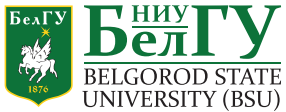Особенности внедрения образовательного подхода «Обучение служением» в учебный процесс в многопрофильном университете: организационно-управленческая модель
DOI:
https://doi.org/10.18413/2949-267X-2025-4-1-0-5Ключевые слова:
обучение служением, социально-ориентированные некоммерческие организации, учебная деятельность, социально-уязвимые категории населенияАннотация
В статье представлена концепция внедрения подхода обучения служением в многопрофильном вузе. Разнообразие реализуемых в университете направлений подготовки, неочевидная связь между образовательными программами и проблемами социально уязвимых групп населения требуют адресной работы с социально-ориентированными НКО по формированию заказов на выполнение работ в рамках образовательной деятельности. В статье изложена разработанная с учетом специфики ВУЗА организационно-управленческая модель, которая предполагает системное внедрение элементов подхода в различные виды учебной деятельности, позволяет отрегулировать трудозатраты профессорско-преподавательского состава и проводить постепенное погружение обучающихся в решение профессиональных задач с отработкой профессиональных компетенций на кейсах от социально-ориентированных некоммерческих организаций и предприятий партнеров.
Изложенная модель прошла апробацию на учебно-методическом совете РГУ им. А.Н. Косыгина и принята к внедрению.
Скачивания
Библиографические ссылки
Список литературы
Выготский, Л.С. Педагогическая психология. − М.: Педагогика, 1991.
Дьюи, Д. Творческая демократия-задача, которая стоит перед нами // Вестник Московского университета. Серия 12. Политические науки. – 2008. – №. 2. – С. 46-51.
Макаренко, А.С. Избранные произведения: в 3 т. − К.: Рад. Школа, 1985. – Т. 3.
Никольский, В.С., Зленко, А.Н. Обучение или служение в российском высшем образовании: особенности начального этапа реализации нового подхода // Интеграция образования. − 2024. − Т. 28, № 3. − С. 421–435. URL: https://doi.org/10.15507/1991-9468.116.028.202403.421-435
Никольский, В.С., Амбарова, П.А., Шаброва, Н.В., Земцов, Д.И., Метелев, А.П. Готовность студентов вузов к общественному служению // Высшее образование в России. − 2024. − Т. 33. № 8-9. − С. 9–26. DOI: 10.31992/0869-3617-2024-33-8-9-9-26
Сухомлинский, В. Рождение гражданина. – Litres, 2023.
Astin, A.W., Vogelgesang, L.J., Ikeda, E.K. and Yee, J.A. (2000), How Service Learning Affects Students. Los Angeles, Higher Education Research Institute, UCLA.
Caspersz, D. and Olaru, D. (2017), The Value of Service-Learning: The Student Perspective, Studies in Higher Education, Vol. 42, Issue 4, pp. 685–700. https://doi.org/10.1080/03075079.2015.1070818
Celio, C.I., Durlak, J.A. and Dymnicki A.B. (2011), A Meta-Analysis of the Impact of Service-Learning on Students, Journal of Experiential Education, No. 34, pp. 164−181.
Gutzweiler, R., Pfeiffer, S. and In-Albon T. (2022), ‘I can Succeed at This’: Engagement in Service Learning in Schools Enhances University Students’ Self-Efficacy, Studies in Higher Education, Vol. 47, Issue 12, pp. 2539–2552. https://doi.org/10.1080/03075079.2022.2091126
Hébert, A. and Hauf, P. (2015), Student Learning through Service Learning: Effects on Academic Development, Civic Responsibility, Interpersonal Skills and Practical Skills, Active Learning in Higher Education, Vol. 16, Issue 1, pp. 37–49. https://doi.org/10.1177/1469787415573357
Jaeger, A.J., Jameson, J.K. and Clayton, P. (2012), Institutionalization of community-engaged scholarship at institutions that are both land-grant and research universities, Journal of Higher Education Outreach and Engagement, Vol. 16, No. 1, pp. 149−170.
Kristina, T. (2008), Lambright Lessons Outside of the Classroom: Examining the Effectiveness of Service Learning Projects at Achieving Learning Objectives, Journal of Public Affairs Education, No. 14(2), pp. 205-217. DOI:10.1080/15236803.2008.12001520
Lo, KWK, Ngai, G, Chan, SCF and Kwan, K-p (2022), How Students’ Motivation and Learning Experience Affect Their Service-Learning Outcomes: A Structural Equation Modeling Analysis, Front. Psychol, 13:825902. doi: 10.3389/fpsyg.2022.825902.
Markus, G.B., Howard, J.P. and King, D.C. (1993), Notes: Integrating Community Service and Classroom Instruction Enhances Learning, Results From an Experiment. Educational Evaluation and Policy Analysis, No. 15, pp. 410 – 419.
Mpofu, E. (2007), Service-Learning Effects on the Academic Learning of Rehabilitation Services Students, Michigan Journal of Community Service-Learning, No. 14, pp. 46−52.
Novak, J.M., Vern, M. and Mike, A. (2007), Evaluating Cognitive Outcomes of Service Learning in Higher Education: A Meta-Analysis, Communication Research Reports, No. 24, pp. 149−157.
Students’ Motivation in Academic Service-Learning over the Course of the Semester / A. Darby [et al.] // College Student Journal, 2013, Vol. 47, No. 1, pp. 185–191. URL: https://www.ingentaconnect.com/content/prin/ csj/2013/00000047/00000001/art00019
Sze-Yeung Lai, C. and Chi-Leung Hui, P. (2020), Service-Learning: Impacts of Learning Motivation and Learning Experience on Extended Social, Higher Education Research and Development, Vol. 40, Issue. 2, pp. 400–415. https://doi.org/10.1080/07294360.2020.1756748
Warren, J. (2012), Does Service-Learning Increase Student Learning?: A Meta-Analysis, Michigan Journal of Community Service-Learning, No. 18, pp. 56-61.
Wilson, J.C. (2011), Service‐Learning and the Development of Empathy in US College Students, Education + Training, Vol. 53, No. 2/3, pp. 207–217. https://doi.org/10.1108/00400911111115735.
References
Vygotsky, L.S. (1991), Pedagogical psychology. M.: Pedagogy. (in Russian)
Dewey, D. (2008), Creative Democracy-Task that stands before us, Vestnik of Moscow University. Series 12. Political Science, No. 2, pp. 46−51. (in Russian)
Makarenko, A.S. (1985), Selected works: in 3 vol. K.: Rad. Shkola, Vol. 3. (in Russian)
Nikolskiy, V.S. and Zlenko, A.N. (2024), Teaching or service in Russian higher education: features of the initial stage of realization of the new approach, Integration of Education, Vol. 28, No. 3, pp. 421-435. URL: https://doi.org/10.15507/1991-9468.116.028.202403.421-435. (in Russian)
Nikolsky, V.S., Ambarova, P.A., Shabrova, N.V., Zemtsov, D.I. and Metelev, A.P. (2024), Readiness of university students to public service, Higher Education in Russia, Vol. 33, No. 8-9, pp. 9−26. DOI: 10.31992/0869-3617-2024-33-8-9-9-26. (in Russian)
Sukhomlinsky, V. (2023), The birth of a citizen. Litres, 2023. (in Russian)
Astin, A.W., Vogelgesang, L.J., Ikeda, E.K. and Yee, J.A. (2000), How Service Learning Affects Students. Los Angeles, Higher Education Research Institute, UCLA.
Caspersz, D. and Olaru, D. (2017), The Value of Service-Learning: The Student Perspective, Studies in Higher Education, Vol. 42, Issue 4, pp. 685–700. https://doi.org/10.1080/03075079.2015.1070818
Celio, C.I., Durlak, J.A. and Dymnicki A.B. (2011), A Meta-Analysis of the Impact of Service-Learning on Students, Journal of Experiential Education, No. 34, pp. 164−181.
Gutzweiler, R., Pfeiffer, S. and In-Albon T. (2022), ‘I can Succeed at This’: Engagement in Service Learning in Schools Enhances University Students’ Self-Efficacy, Studies in Higher Education, Vol. 47, Issue 12, pp. 2539–2552. https://doi.org/10.1080/03075079.2022.2091126
Hébert, A. and Hauf, P. (2015), Student Learning through Service Learning: Effects on Academic Development, Civic Responsibility, Interpersonal Skills and Practical Skills, Active Learning in Higher Education, Vol. 16, Issue 1, pp. 37–49. https://doi.org/10.1177/1469787415573357
Jaeger, A.J., Jameson, J.K. and Clayton, P. (2012), Institutionalization of community-engaged scholarship at institutions that are both land-grant and research universities, Journal of Higher Education Outreach and Engagement, Vol. 16, No. 1, pp. 149−170.
Kristina, T. (2008), Lambright Lessons Outside of the Classroom: Examining the Effectiveness of Service Learning Projects at Achieving Learning Objectives, Journal of Public Affairs Education, No. 14(2), pp. 205-217. DOI:10.1080/15236803.2008.12001520
Lo, KWK, Ngai, G, Chan, SCF and Kwan, K-p (2022), How Students’ Motivation and Learning Experience Affect Their Service-Learning Outcomes: A Structural Equation Modeling Analysis, Front. Psychol, 13:825902. doi: 10.3389/fpsyg.2022.825902.
Markus, G.B., Howard, J.P. and King, D.C. (1993), Notes: Integrating Community Service and Classroom Instruction Enhances Learning, Results From an Experiment. Educational Evaluation and Policy Analysis, No. 15, pp. 410 – 419.
Mpofu, E. (2007), Service-Learning Effects on the Academic Learning of Rehabilitation Services Students, Michigan Journal of Community Service-Learning, No. 14, pp. 46−52.
Novak, J.M., Vern, M. and Mike, A. (2007), Evaluating Cognitive Outcomes of Service Learning in Higher Education: A Meta-Analysis, Communication Research Reports, No. 24, pp. 149−157.
Students’ Motivation in Academic Service-Learning over the Course of the Semester / A. Darby [et al.] // College Student Journal, 2013, Vol. 47, No. 1, pp. 185–191. URL: https://www.ingentaconnect.com/content/prin/ csj/2013/00000047/00000001/art00019
Sze-Yeung Lai, C. and Chi-Leung Hui, P. (2020), Service-Learning: Impacts of Learning Motivation and Learning Experience on Extended Social, Higher Education Research and Development, Vol. 40, Issue. 2, pp. 400–415. https://doi.org/10.1080/07294360.2020.1756748
Warren, J. (2012), Does Service-Learning Increase Student Learning?: A Meta-Analysis, Michigan Journal of Community Service-Learning, No. 18, pp. 56-61.
Wilson, J.C. (2011), Service‐Learning and the Development of Empathy in US College Students, Education + Training, Vol. 53, No. 2/3, pp. 207–217. https://doi.org/10.1108/00400911111115735.



